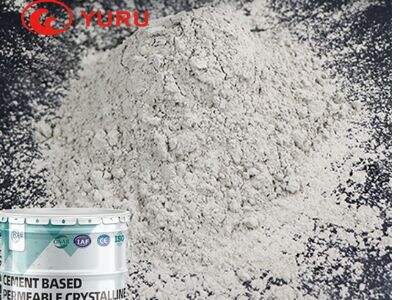Chemical injection waterproofing looks like a neat trick to stop water from getting into buildings, but in reality, it has some downsides. Next, let's go over the hazards, dangers, pitfalls and problems of using any sort of chemical injection.
Dangers of Chemical Injection Waterproofing:
The most problematic issue in chemical injection for waterproofing is the very dangerous chemicals. These waterproof roof coating chemicals are dangerous in that they can be fatal to humans and animals, and unhealthy for the environment. When handled improperly they are responsible for many of our common health issues and environmental damage. These chemicals should only be used with extreme caution and in full compliance with all safety protocols.
Dangers of Water-Proofing with Chemical Injection:
Along with the risks of this contamination from the compounds — you can find a few different hazards linked using chemical shot shipping and shipping drain waterproofing operations. If, for instance, the chemicals would not mix or implement properly they will fail at doing their job of keep water out. This may end up creating a water damage risk to the structure, which if allowed to happen can be expensive. The other possibility is that the chemicals will seep into the surrounding soil and kill off plants, and any kind of wildlife.
Drawbacks of Chemical Injection Waterproofing
The cost of chemical injection waterproofing can also be high. Over time the expense of the chemicals, equipment and professional installation may make this an expensive durability option. Talking about larger building footprint or regular homeowner on a budget this doesn't appear to be an option. The Pu waterproofing chemicals can preserve their functionality but might require a re-application over time as part of that process, so the overall cost may increase accordingly.
The following is a list of potential drawbacks to chemical injection waterproofing;
But chemical injection waterproofing is not without its issues. When holes or weak spots exist due to uneven chemical application. This destroys the waterproofing in general. And they could degrade the building materials if the chemicals are non-compatible.
Disadvantages of using chemical injection for waterproofing:
In the end, it may sound like chemical injection waterproofing is a simple and fast way to handle these problems. Some of these factors are the risk of the chemicals themselves, while others depend on how well you apply them. These cons of the expensive price and potential issues are on top of the others that make you think twice before chemical injection for Waterproofing cement paint.
As a result, the use of chemical injections Industrial Waterproofing Solutions can seem like an attractive option in some cases to keep water from infiltrating buildings but it is important to consider the risks and pitfalls fully. Consulting Yuru here, you should also check out other waterproofing practices which could potentially be more innocuous, budget-friendly as well as sustainable in the long run. Waterproofing is important not only for the fact that it will give you a dry comfortable home but also for the environmental impact of how to do waterproofing.



